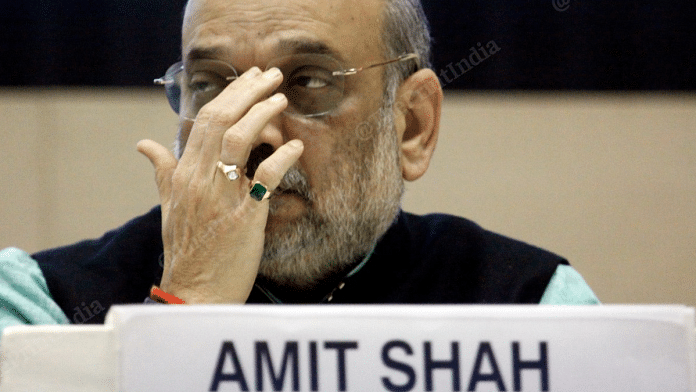New Delhi: Union Home Minister Amit Shah on Thursday said India has adopted a zero tolerance policy towards narcotics and the country’s measures to control it will be overhauled so that smuggling and trade of drugs is stopped completely.
The “dirty money” obtained from narcotics trade is also used for funding global terrorism and other transnational crimes, he noted, adding that it was the need of the hour for all the countries to join hands and fight the problem.
Inaugurating a two-day conference on ‘Combating Drug Trafficking’ for the Bay of Bengal Initiative for Multi-Sectoral Technical and Economic Cooperation (BIMSTEC) partner nations, Shah said, “We will not allow drugs from any country of the world to enter into our country nor will we allow it to go out of the country.”
Declaring that India has adopted a zero tolerance policy towards all kinds of narcotics, the home minister said the country wants to closely work with BIMSTEC and other nations to wipe out the menace.
“I want to assure that India is committed to end the drug menace and will take the lead role to check narcotics trade in the world,” he said.
“India will leave no stone unturned to tackle the problem strongly,” Shah said.
Also read: Amit Shah to inaugurate India’s first BIMSTEC conference on drug trafficking
According to an official statement, Asian countries are increasingly being affected by drug trafficking and BIMSTEC being the key link between the South Asian and the South East Asian Nations is one of the most effective platforms to tackle this global threat.
BIMSTEC is a regional organisation comprising seven member states – India, Bangladesh, Bhutan, Myanmar, Nepal, Sri Lanka and Thailand.
Shah also said Manipur and Mizoram having borders with Myanmar and some coastal states are sensitive and may become a gateway for illicit drugs entering India, which needs to be prevented.
He called illicit drug trade a global menace and said it is a burning global issue that plagues every nation, especially the Bay of Bengal littoral states.
It is thus very important for all the countries to engage with each other to exchange ideas, policies and best practices in order to combat this menace, Shah said.
The home minister expressed concern over the increasing rate of drug addiction i.e., a 30 per cent rise in the last 10 years and termed the menace a “curse for mankind” as it not only kills an addict but also destroys families as well as the society.
Quoting Prime Minister Narendra Modi, he said there is no nation in the world that is not affected by global terrorism, transnational crimes and illicit drug trafficking.
He expressed confidence and hope that this conference would open new avenues and generate new solutions to combat the menace of drug trafficking in the region.
Shah assured the delegates that under the prime minister’s vision of a drug-free India, the government of India has devised a well laid out strategy to ensure inter-agency coordination and revamp the prosecution mechanism to end the menace of drug trafficking.
He cited an estimate of more than USD 400 billion of yearly illicit drug trade happening globally, giving an idea of the size of the mammoth issue facing humanity.
The home minister said there is a need for all the nations to join hands and supplement each other’s efforts in fighting this menace as this global scourge cannot be fought by any country individually.
He laid emphasis that the nations of BIMSTEC are especially affected by illicit drug trade, transnational crimes and terrorism, making it all the more important to use a platform like this to devise coordinated strategies in ending the menace.
Shah said India taking the lead in organising this BIMSTEC conference would act as the harbinger of new avenues within the region that will help bringing other nations on such similar platforms to find solutions to tackle drug trafficking.
He also termed the Bay of Bengal littoral states as the focus of India’s ‘Neighbourhood First’ and ‘Act East’ policies and India being the largest country in the region will not shy away from its responsibilities in fighting drug trafficking and terrorism.
Talking about the steps taken by the central government in combating drug trafficking, Shah said the government has laid down a well thought out strategy to increase coordination among the agencies of the Centre as well as states, and the Home Ministry has established a joint coordination committee to increase surveillance over drug trafficking.
Also read: J&K police will now book cattle smugglers, drug peddlers under stringent Public Safety Act



